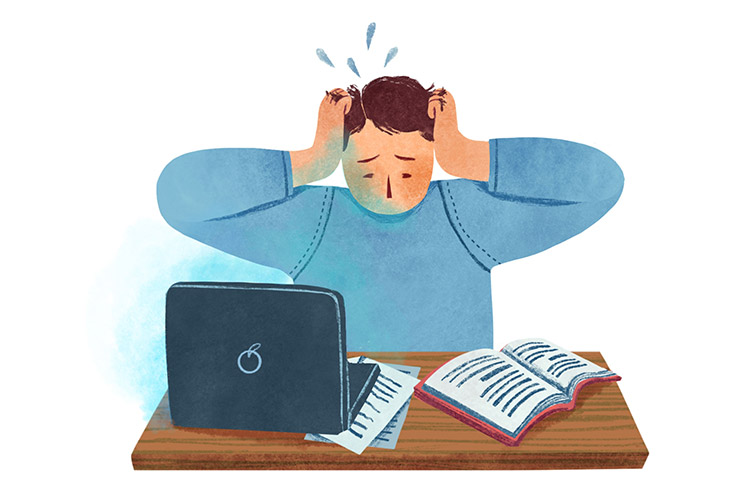
A majority of the students experience significant or even chronic amounts of stress and this can take a serious toll on their grades, happiness and overall well being. The demands of an institution like university or school, like academic demands, being away from home and friends and family in case of boarding schools and hostels, or bullying and peer pressure from other students require a lot of effort on their part to adapt, adjust and flourish.
Moreover, a study by the American Psychological Association (APA) found that adolescents report stress levels as similar to those of adults. This means that often the stressors that students face may exceed their ability to cope efficiently. However, there are many techniques of stress management, and in severe cases, treatment also helps reduce the symptoms of stress considerably.
Stress is the body’s reaction to adverse situations. Though stress is mostly perceived as something bad, it can in fact be good in some cases. The right kind of stress can help hone our skills and train our brain to help our body perform better and tackle tricky situations to suit our needs. Biologically, stress is a physiological reaction in our body where certain hormones are released resulting in physical manifestations of stress.
Student life, for most, involves dealing with a significant amount of stress which takes significant tolls on health, both physical and mental, and often grades too. A well reviewed study by the American Psychology Association (APA) found that teens usually report similar levels of stress as adults. This means that teens experienced significant levels of chronic stress, and a lot of them admitted to their stress levels generally exceeding their ability to cope with it effectively.
Usually there are three kinds of common types of student stress, or in other words, three broad categories of stress triggers:
Signs and symptoms that you might be stressed:
Identifying what causes stress in students can be the first step towards addressing it and eventually managing or treating it. Knowing the stress triggers and learning how to micromanage the molecular issues can help the students help experience less stress and also allows people around to support them better.
Following are the issues that can cause stress among students
Stress is a powerful feeling that can drive you to be successful in life, but at the same time, it can also be debilitatingly harmful. It can, if not handled properly, completely shake the foundations of your career and relationships.
If you’re living with an uncontrollably high amount of stress, you’re not just putting your mental health at risk, you’re also very likely to have poor physical health. It is a proven fact that stressed individuals are likelier to expose themselves to pathogens of illnesses. Around 60-80% doctor visits are stress-related. This is because distress impacts our immunity levels drastically.
Moreover, stressed students are also much more susceptible to taking part in health impairing activities such as:
Physical health problems and chronic illnesses like ulcers, hypertension, heart disease, diabetes and even cancer have strong links with stress.
The only way to overcome stress is to learn about it. Practical stress management can help students deal with whatever worries them and eventually be more effective and productive with reduced negative feelings.
Usually students tend to have packed schedules and we are notoriously famous for skipping sleep, which leads to poor health which leads to poor hygiene and it keeps adding up until we fall ill.
Students can prevent staying in this vicious cycle by following these few tips to manage their stress:
Your email address will not be published. Required fields are marked *

Incontact Counselling & Training
Hello there!
Thank you for connecting with us. Please leave us a message, and we will get back to you as soon as possible.
Rest assured, all communication is treated with the utmost confidentiality. We look forward to assisting you.